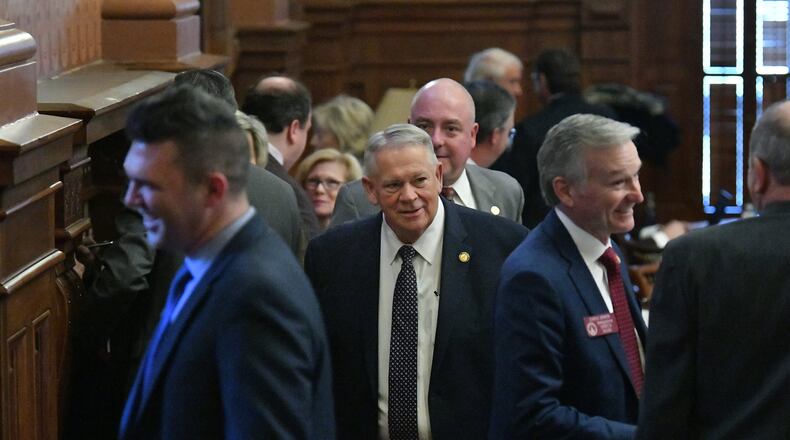House Speaker David Ralston says a bill to end free-for-all special elections in Georgia probably wouldn't affect this year's upcoming election for the U.S. Senate.
Chances of the bill passing in its current form — which would force U.S. Sen. Kelly Loeffler into a Republican primary against U.S. Rep. Doug Collins in May — dimmed Thursday when House leaders sent the legislation back to its committee.
Ralston told News 95.5 and AM 750 WSB that it’s unlikely the bill would have an impact on the U.S. Senate special election, which under current Georgia law will include all candidates from multiple political parties on the same ballot in November.
But Ralston, a Republican from Blue Ridge, said he supports proposals to create partisan primary elections for future federal and state legislative races.
"It was never directed at this special election," Ralston said of House Bill 757. "This special election was not to be singled out. I think jungle primaries are bad policy. We're just trying to change the policy moving forward."
Gov. Brian Kemp threatened to veto the bill, which could have divided Republicans between Loeffler and Collins. Kemp appointed Loeffler in December to succeed U.S. Sen. Johnny Isakson. The winner of November's election will serve the final two years on Isakson's term.
The bill could be amended to include primary elections for state House and Senate special elections when it’s reconsidered by the House Governmental Affairs Committee next week.
HB 757 also makes clear that Secretary of State Brad Raffensperger would set the candidate qualifying period for the Senate election. For decades, the secretary of state has determined when candidates can sign up, and this legislation was designed to avoid questions and potential lawsuits about his authority to do so.
About the Author
Keep Reading
The Latest
Featured




